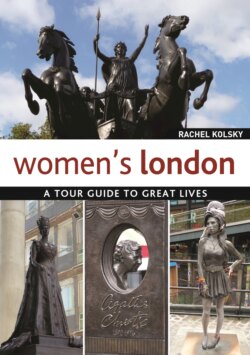Читать книгу Women's London - Rachel Kolsky - Страница 8
На сайте Литреса книга снята с продажи.
HOW TO USE THIS BOOK
ОглавлениеWhether a local or a visitor to London, you will find Women’s London informative, entertaining and easy to use. Every effort has been made to ensure that the information provided is up to date and accurate. Postcodes have been given when appropriate to assist readers. Displays at galleries and museums can change, as do opening hours and entrance fees, so website details are provided for planning your visits.
Referencing
Several of the women appear in more than one walk or feature. Page references indicate the key entries for a particular woman, but do check the index for other references.
Abbreviations
Throughout the book several organizations are linked to different geographic areas, themes and personalities. The name is often listed in full at its first mention and subsequently (with a few exceptions) in its abbreviated form. Do also use the index.
Travel Information
For most listings the nearest station is given, whether tube, overground or mainline. If the site is not in close walking distance, additional information indicates walking time or if a bus journey is advised. There are numerous bus routes in London and bus stops are found at or close to all the walking areas and points of interest in this book. Transport for London (www.tfl.gov.uk) is an excellent resource for planning travel by train and bus and checking scheduled line closures.
Maps
Each walking tour includes a map indicating the route and sites. The Central London map on here provides a selection of key sites indicated within the main text of the book using coloured indicators as follows:
Yellow: art, architecture and artists
Orange: statues
Green: plaques
Red: streets
Purple: sites
MAP KEY
Walking route
Place of interest
Tube station
Overground station
Docklands Light Railway (DLR) station
Mainline station
Church
Synagogue
Catherine Booth
National Union of Women’s Suffrage Societies (NUWSS) meeting 13 June 1908, handbill
